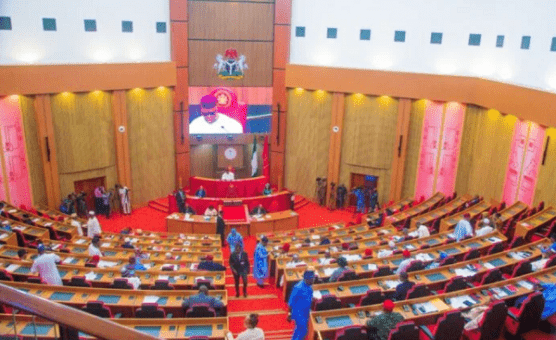
An effort to amend the Senate Standing Orders, widely seen as a move to smooth the return of incumbent presiding officers in the next Assembly, was halted on Tuesday after resistance from lawmakers and procedural concerns brought deliberations to an abrupt stop.
The amendment, sponsored by Senate Leader Opeyemi Bamidele, sought revisions to key sections of the 2023 Standing Orders. Presenting the motion on his behalf, Senator Lola Ashiru, under the title “Amendment of the Standing Orders of the Senate 2023 to Accommodate New Committees and Enhance Legislative Practice,” argued that updates were needed to reflect emerging national realities, new commissions, and evolving governance needs.
However, several proposals immediately sparked controversy:
Pre-Oath Voting for Presiding Officers – Allowing senators-elect to vote for the Senate President and Deputy President before taking the constitutional oath.
Mandatory Prior Senate Experience – Restricting eligibility for top positions to senators who had completed at least one full four-year term.
Stricter Ranking Rules – Establishing a hierarchy that prioritizes former presiding officers and long-serving senators, effectively limiting first-term senators’ eligibility.
Former Gombe State Governor and Senator Danjuma Goje was first to object, calling for the removal of all three contentious provisions.
The Minority Leader, Abba Moro, raised a point of order citing Order 109 of the Senate rulebook, reminding colleagues that any amendment must be formally submitted, printed, circulated for seven days, and listed on the Order Paper before debate. “Have we followed this rule? If not, we should pause and adhere to due process,” he said.
As murmurs spread across the chamber, Senate President Godswill Akpabio weighed in, particularly questioning the ranking clause, which he said could predetermine leadership outcomes. “Number four means no newly elected senator can become Senate President if a senior-ranking member is available. This effectively gives certain senators automatic advantage,” he warned, upholding Moro’s point of order.
Consequently, the motion was stepped down to a later legislative date, leaving the proposed amendments unresolved and highlighting the sensitivity surrounding Senate leadership arrangements ahead of the next Assembly.



